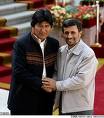NEW Iran: Maziar Bahari on His 118 Days in DetentionVideo and English Text: Mousavi Interview with Kalemeh (21 November)The Latest from Iran (21 November): Mousavi, Khomeini, and AhmadinejadReceive our latest updates by email or RSS SUBSCRIBE TO OUR FEEDBuy Us A Cup of Coffee? Help Enduring America Expand Its Coverage and Analysis
2125 GMT: Activists on Twitter are reporting
the arrest of blogger/journalist Sasan Aghaei.
1940 GMT:
Karroubi's Latest Letter. Mehdi Karroubi has written to Iran Prosecutor General Gholam-Hossein Mohseni-Ejeie and Habib-allah Askaroladi, the secretary general of the conservative Mo'talefe party, posting the letter
on his Tagheer website.
The letter is a renewal of Karroubi's campaign for the truth on reports of abuse of detainees, responding to the attempts of Mohseni-Ejeie and Askaroladi to cast doubt on his claims and motives. He repeats his earlier account of meetings with the three-member judiciary panel that was appointed to consider the charges. In particular, he states that, while he raised the case of Saeedeh Pouraghai but warned that it might be false. (The claims that Pouraghai had been raped and killed by security forces are now discounted. Some believe the case was "manufactured" by the regime so it would discredit the opposition when the falsehood emerged.)
Karroubi also challenges Askaroladi's claims that the Green movement is financed by millions of dollars from the US Government and demands that Mousavi and Karroubi "must be dealt with".
1740 GMT: The Visits Begin. Former President Mohammad Khatami
has visited Mohammad Ali Abtahi in his home.
1625 GMT: Rumour of Day "Mortazavi in Evin Prison".
Norooz claims that Saeed Mortazavi, who was Tehran's Prosecutor General in the early part of the post-election crisis, has been spotted in prison garb at Evin Prison. The website claims that Mortazavi has not been seen in public in two months and raises the possibility that he will disappear via "suicide", just like Kahrizak prison doctor Ramin Pourandarjan. (Norooz also sees parallels with the case of Said Emami, the intelligence operative and deputy minister found dead in his cell a decade ago. He was blamed for a series of murders after his death.)
1610 GMT: Abtahi Freed. The picture of former Vice President Mohammad Ali Abtahi provides happy confirmation of his release on bail after 160 days in detention (see 0735 and1405 GMT).

Abtahi has also
posted on his blog. He says he will soon return to updating the blog on a daily basis. He hopes for the freedom of his fellow inmates, especially Abdollah Ramezanzadeh and Mohsen Safai-Farahani, to whom he bade a tearful farewell this morning.
1525 GMT: Economic Pressure. Following up our initial item this morning on the pressures on Mahmoud Ahmadinejad (0735 GMT), Presidential candidate and secretary of the Expediency Council, Mohsen Rezaei ,
has criticised the President's proposed legislation on subsidies and taxes. “As a result of the new law, the effect of the global economy on the domestic economy will be more than before,” Rezaei wrote to Speaker of Parliament Ali Larijani.
Rezaei suggested the formation of an independent council of financial experts to study the impact of the bill on the lives of Iranians.
1520 GMT: Today's University Protests. There has been chatter throughout the day of
clashes between students and security at Khaje Nasir University, and a short video has been posted of
the demonstration at Tehran University.
1505 GMT: More Tehran Signals on the Nuke Deal. Ali Ashar Soltanieh, Iran's Ambassador to the International Atomic Energy Agency,
has reiterated his comments (see 0955 GMT) about Iran's desire to negotiate an enrichment deal, provided it keeps uranium within the country. “We are ready for talks with a positive approach, but the main issue is a guarantee for the timely supply of fuel for Iran's medical needs." Soltanieh referred to Iran's grievances with France and Russia over delays and failures to fulfil previous contracts: “Considering Iran's lack of confidence towards the West regarding the past nuclear activities, we need to have these guarantees."
1405 GMT: Abtahi Update. Former Vice President Mohammad Ali Abtahi, who was sentenced to a six-year prison term yesterday (see 0735 GMT),
has been released on a bail of 700 million tomans (about $700,000) while the sentence is appealed.
1035 GMT: The Election was Most Fair. Really. Fars News offers acres of space to Ali Zakani, a member of the six-member Parliamentary committee that "investigated" the Presidential election, to defend the outcome and the committee's proceedings.
Zakani details meetings with Presidential candidates Mir Hossein Mousavi, Mehdi Karroubi, and Mohsen Rezaei and with former President Hashemi Rafsanjani. All of this is to establish that the election was fair and to indicate that any "fraud" is on the part of those challenging President Ahmadinejad's legitimacy.
0955 GMT: The Government Wants a Nuclear Deal. Can't be
a clearer signal than this:
Iran's ambassador to the UN nuclear watchdog [International Atomic Energy Agency] says over 200 hospitals in the country urgently need higher-enriched uranium. As a timely reminder that obtaining higher-enriched uranium is a matter of great urgency for Iran, Ali-Asghar Soltaniyeh said that the fuel is required for the Tehran nuclear reactor, which is designed to produce radioisotopes used by Iranian hospitals for medical treatment.
He warned that if Iran's proposal to purchase the fuel from abroad falls through, the country would have no choice but to enrich uranium to the required level of 20 percent...."We need the fuel because more than 200 hospitals depend on it."
o935 GMT: A Clerical Putsch? We held off on noting this story, but as a sharp-eyed EA reader has raised it....
Rooz Online summarises reports circulating in Iran:
Following the escalation of protests by Iran’s senior ayatollahs against the regime, some members of the Qom Seminary Teachers Association (the most important organization of clerics affiliated with the regime) are planning to present a new list of “grand ayatollahs” under the supervision of Mohammad Yazdi, Ahmad Jannati and Mesbah Yazdi....
According to rumors, the new list of grand ayatollahs will include people such as Jafar Sobhani, Mahmoud Hashemi Shahroudi, Khoshvaght, and a number of other ayatollahs approved by the regime. Credible reports indicate that prominent grand ayatollahs such as Montazeri and [Bayat] Zanjani will not have a place on the list....[Nor will] Dastgheib.
I still think the key word in the story is "rumors". The significance of the article is that it shows the concern of the regime and its supporters over the ongoing (and possibly escalating) resistance from Qom. A radical change to the list of Grand Ayatollahs, especially when it is clearly based on political rather than religious considerations, is likely to stoke that resistance.
0740 GMT: A depressing end to Saturday for the opposition movement, as
Mowj-e-Sabz claimed that former Vice President Mohammad Ali Abtahi has been sentenced to six years in prison. Abtahi, as one of the highest-profile detainees, was seen by the Government as a potential asset for propaganda. His televised "confession" was one of the low-lights of the first Tehran trial, and the regime even tried (briefly) to have Abtahi blog from prison to offset criticisms about the conditions of detainees.
Now it appears that the Government has given up on that use of Abtahi, and it has also decided that the advantage lies in keeping him in jail rather than extending a hand to the reformists through his release.
0735 GMT: Mahmoud Ahmadinejad has always cut a confident, even cocky figure. And when challenged, he fights back.
So it's no surprise that the President would "go big" with
a tour covering five days in five countries: Brazil, Venezuela, and Bolivia in South America and Senega land Gambia in Africa. He can finally project himself as a world leader, having been shut out by almost every head of state in the first three months after the disputed election. He can play on the assured support of Venezuela for Iran's nuclear programme and foreign policy. He can present Iran's expanding influence with the African leg of the trip. And no doubt there will be more than a few words on oil and natural gas, as well as
the signing of commercial agreements.
Don't let this fool you, however. Ahmadinejad's travels are also a deliberate distraction from the homefront. For all the questions over the future course of the opposition, for all the "busted flush" of the National Unity Plan, the President has not been able to nail down a secure position.
The photographs of Ahmadinejad's visit to Tabriz are more than symbolic. Whether or not most Iranians support the Green movement, they are not turning out in the 63% claimed by the President in the June vote. The conservative/principlist politicians are rumbling again in Parliament, especially over Ahmadinejad's economic proposals, and the clerics in Qom are discussing and planning.
The President returns from his journey at the end of November. At that point, it will be just over a week to the demonstrations of 16 Azar (7 December).
 Friday, November 27, 2009 at 7:31
Friday, November 27, 2009 at 7:31  Yesterday an EA reader sent me this thoughtful and challenging comment:
Yesterday an EA reader sent me this thoughtful and challenging comment:
 0645 GMT: A busy Wednesday, not only in political updates but in conversations with those who have a window into what is happening in Washington and Tehran. The politics and possibilities are so complex that days will be needed to work through the analysis but:
0645 GMT: A busy Wednesday, not only in political updates but in conversations with those who have a window into what is happening in Washington and Tehran. The politics and possibilities are so complex that days will be needed to work through the analysis but: 2030 GMT: El Baradei's Clues. Want to know the state of the nuclear talks with Iran? The head of the International Atomic Energy Agency, Mohammad El Baradei, offers all the necessary hints
2030 GMT: El Baradei's Clues. Want to know the state of the nuclear talks with Iran? The head of the International Atomic Energy Agency, Mohammad El Baradei, offers all the necessary hints  2125 GMT: Activists on Twitter are reporting
2125 GMT: Activists on Twitter are reporting 
 2105 GMT: Apparently Saeed Sharati was freed "
2105 GMT: Apparently Saeed Sharati was freed "